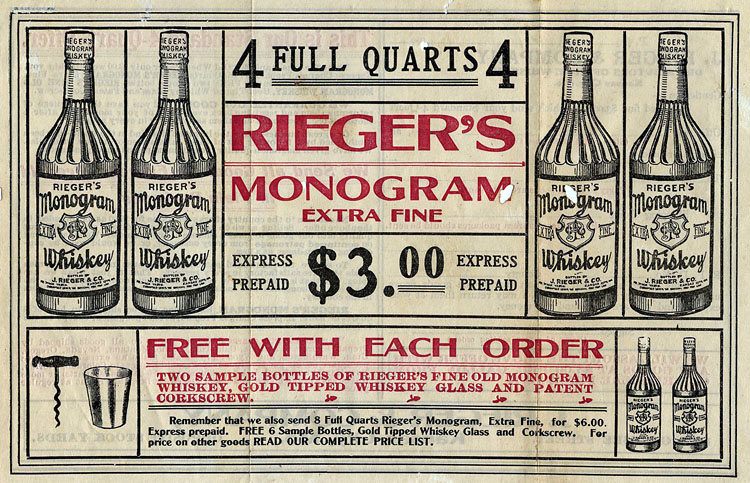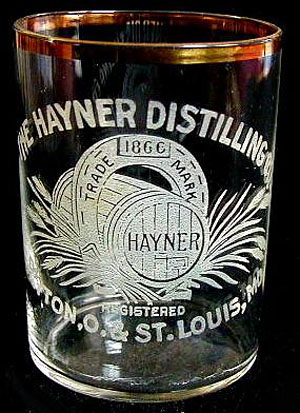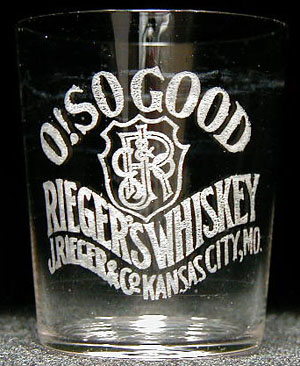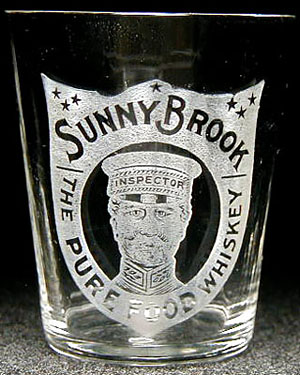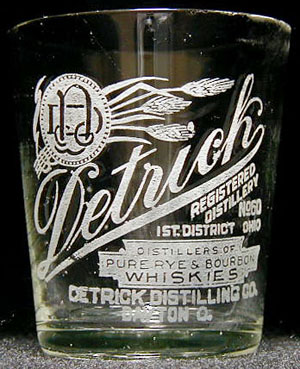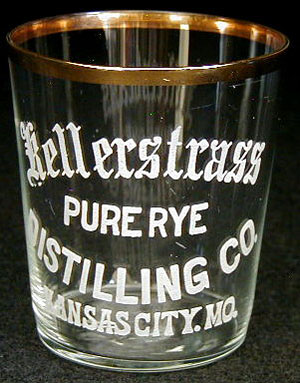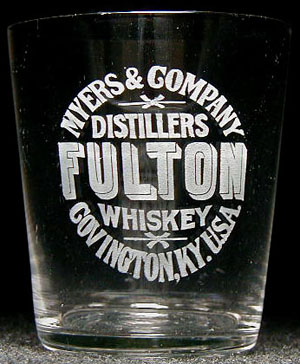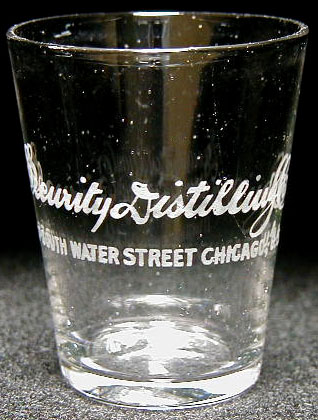|
The
allure of the thin-walled whiskey glasses as a cheap and easy way of
marketing was embraced fully by distilleries, liquor wholesalers and
retailers, hotels, saloons, drug stores (who had long sold liquor for
medicinal purposes) and even some furniture stores.
The distilleries and larger wholesalers who were marketing their
product nationwide via the mail lead the way in terms of glass
production volume, because each unmarked shipment included at least one
thin-walled shot glass. The most
common pre-pro glasses surviving today thus include those
produced by the Hayner Distilling Co. of Dayton, OH., Jacob Rieger
& Co. of Kansas City, MO., (who claimed to be "the largest
mail-order whiskey house in the United States"), the Sunny Brook
Distillery Co. of Chicago, IL., the Detrick Distilling Co. of Dayton,
OH., the Kellerstrass Distilling Co. of Kansas City, MO. and Myers
& Co., Distillers of Covington, KY. The latter were the owners
of the Fulton brand featured in the introduction to this brief history
of pre-pro shot glasses.
The O! So Good glass featured on the top row above (middle) was an
advertising premium from J Rieger & Co. of Kansas City.
The
flyer above is from the same company and promises two sample bottles of
whiskey and a corkscrew in addition to the "Gold Tipped Whiskey Glass"
in every order. The glass in the photograph above has lost its Gold Tip
sometime during the past 100 years, but there are remnants clearly
visible in person. The gold bands on pre-pro whiskey glasses
often shown signs of wear and may often be missing altogether.
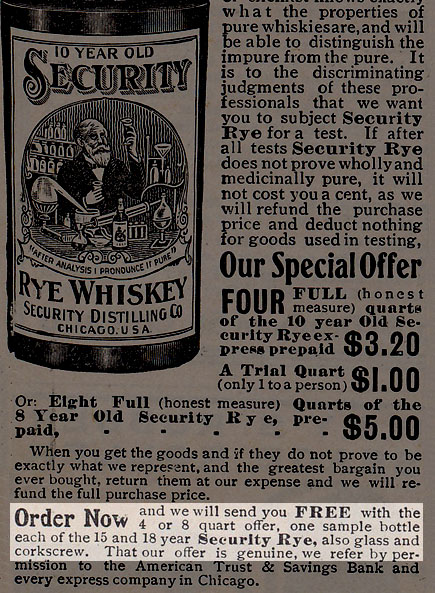 |
The
"Security Rye Whiskey" ad that
appears next to the Jell-O girl on the first page of this series
attempts to lure new customers with the promise of a free shot glass
with every bottle
ordered. The fact that Security Distilling Co.
whiskey
glasses are one of the most common surviving today stands
testament to the company's success in persuading whiskey-drinkers to
buy their product.
|
 |
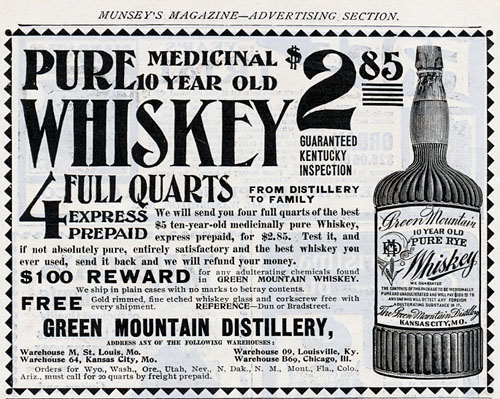 |
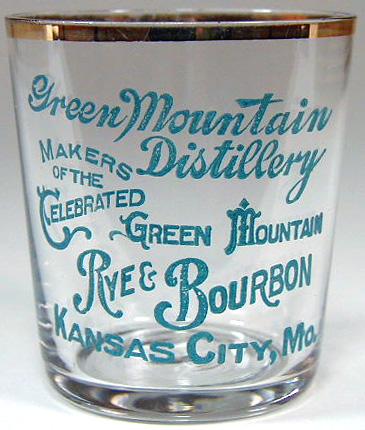 |
Pre-pro
whiskey glasses with colored inscriptions are relatively rare,
perhaps because they were more expensive to produce.
The
Green Mountain Distillery glass at right above has a blue-green label
to advertise its midwestern Green Mountain origins. It also has a
gilded rim, which added to the cost of its manufacture.
Still,
the Green Mountain Distillery of Kansas City, MO. guaranteed a free
glass and corkscrew with every order (see clipping from the ca.
1900 Munsey's Magazine ad above) and the company must have
been
well rewarded for the quality of its premiums given how common this
glass is nowadays! |
The
smaller liquor wholesalers and retailers presumably gave
away glasses to their patrons on an individual basis, much as
branded pens, pins, and other small items are handed out by
businesses of today. It's difficult to be sure exactly how
the
glasses found their way into the hands of consumers because such
details were rarely recorded.
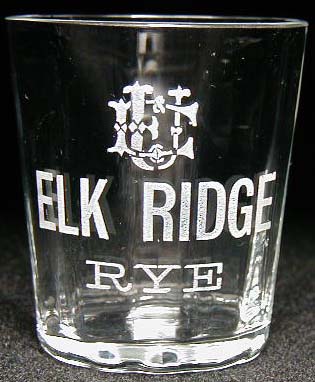 |
We
do know that the E.L.
Kerns
bottling plant of Trenton, NJ. sold Elk Ridge Rye,
which was distilled by Ullman-Einstein Co. of Cleveland, OH.
E.L.
Kerns offered Elk Ridge Rye shot glasses (such as the one shown at
left) as a reward to help persuade customers to return
their empty
whiskey bottles! |
|

